Marvel’s Families
"An examination of the persistent theme throughout the Studios's films"
Marvel has stretched itself out to many different styles over the last few years. Fantasy, comedy, spy thrillers, heists, period pieces, nothing is off limits when it comes to their films. But, despite this, they manage to maintain consistency across them that is quite impressive. There are many elements that they use to keep this consistency, most of which have been discussed to no end. But there's one that never seems to come up: their themes; namely, the theme of family. Almost every single one of Marvel's endeavors has family as a significant element of it. "Oh, sure, they're family films, so of course they have families in them," you might say. But this runs deeper than that. Family runs down to the very core of these movies.
Iron Man (2008)
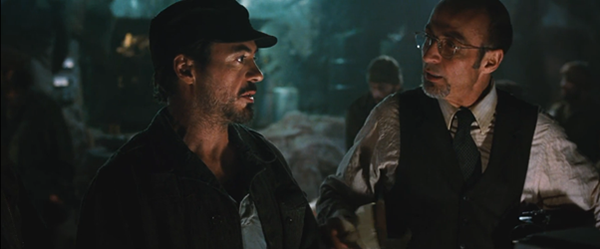
Marvel came out of the gate swinging, with a character arc that is so overtly driven by family. Tony Stark is content to live in the shadow of his legendary father until he finds out what dark things are lurking inside of it. At the start of the film, Tony is quoting his father to justify the work that he does developing weapons: "My old man had a philosophy: peace means having a bigger stick than the other guy.". After being captured, he's locked up with Yinsen, another scientist who supposedly has a family to go home to, while Stark has none ("So you're a man who has everything... and nothing."), but during their escape Yinsen sacrifices himself, revealing that his family is dead and encourages Tony to do something with his life.
After returning home, the second thing he does is call a press conference, in which he invokes his father again, but with a different perspective,
I never got to say goodbye to my father. There's questions I would've asked him. I would've asked him how he felt about what his company did, if he was conflicted, if he ever had doubts. Or maybe he was every inch of man we remember from the newsreels.
In many ways, the Iron Man suit is Tony's way of working through his mountain of daddy issues, a concept which the second film doubles down on. Obadiah Stane, the film's villain who was Howard Stark's former partner and Tony's surrogate uncle, even compares the suit to Howard's work building the atomic bomb.
The Incredible Hulk (2008)
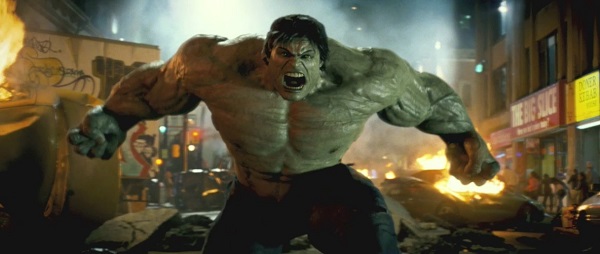
This film has always been the black sheep of the Marvel Cinematic Universe, to the point where some even erroneously argue that it is not part of it. This case is no different. Marvel Studios' second endeavor, coming out just over a month after
Iron Man, has no themes of family in it whatsoever. Sure, General Ross is Betsy's father, but that is not really a theme, just a character dynamic. Ironically enough, though, Ang Lee's original
Hulk film from 2003 has enough family issues for both movies
.
Iron Man 2 (2010)
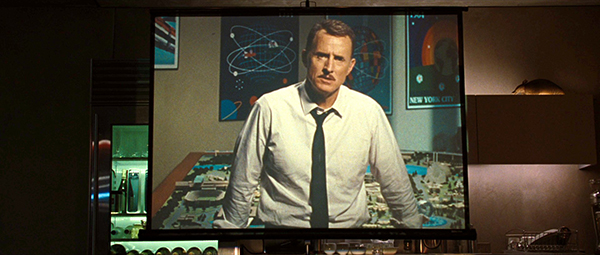
Where the first
Iron Man approached the issue of Tony's father in a more subtle, subtextual way, the sequel places it front and center. The film is set around Stark Expo, an event that Howard used to hold which Tony has revived to honor his legacy, including playing old newsreel footage of his father at the event. The villain of the film is Ivan Vanko, a literal repercussion of Howard's legacy that is falling onto Tony. Ivan has inherited a grudge against the Starks from his father and is bringing it to bear on Tony.
Tony's first outing had him living under his father's shadow and deciding what to do with the legacy he inherited. This film has Tony coming to terms with his relationship with his father. In one scene, Nick Fury asks Tony what he remembers of his father. He responds with, "He was cold, calculating, never told me he loved me, never even told me he liked me, so it's a bit hard for me to digest that he said the whole future is riding on me thing, I don't get that! You're talking about a man whose happiest day of his life was shipping me off to boarding school," to which Fury counters, "That's not true."
Over the course of the movie Tony
revisits his father through the unedited newsreel footage, seeing past the man in the newsreels that he talked about in the first film, trying to reconnect with him and find answers. Eventually, he comes across a message left specifically for him,
Tony, you're too young to understand this right now, so I thought I would put it on film for you. I built this for you. And some day you'll realise that it represents a whole lot more than people's inventions. It represents my life's work. This is the key to the future. I'm limited by the technology of my time, but one day you'll figure this out. And when you do, you will change the world. What is, and always will be, my greatest creation... is you.
This message helps Tony discover the solution to his problem, hidden in plain sight for years by his father, allowing the two to come together after Howard's death in a way they never could while he was alive.
Thor (2011)
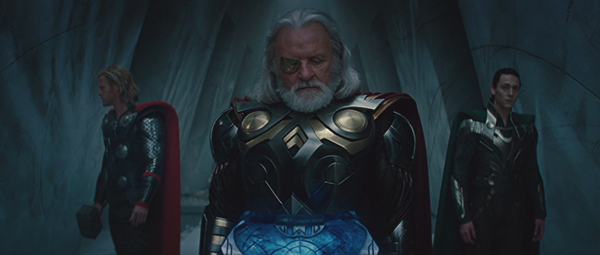
This one is really a no-brainer, isn't it? Thor, in movies, myth and comics, contains enough familial intrigue and scheming to do William Shakespeare proud, which is why Marvel went and got famed Shakespearean director Kenneth Branagh to direct the film.
Thor and Loki, both sons of the king Odin, raised to take his place while only one of them can. After an attack on Thor's coronation
– secretly orchestrated by Loki – Thor makes a brash and reckless attack on the Frost Giants, causing him to be stripped of his power and exiled. During Thor's absence, Loki discovers that he is not actually Odin's son, but was stolen away from the king of the Frost Giants as a child. Loki conspires with his biological father to kill his adoptive father so that he can betray his biological father, save his adoptive father, earn his respect, and take the heirship from his brother. And that's the simple version.
The entire film is driven by the relationship dynamic of these three people. Thor learning from Odin, Loki trying to win Odin's approval while
struggling with his newfound parentage, Odin trying to maintain peace between the Asgardians and Frost Giants, represented by his two sons, and of course the conflict between the two brothers, whose fraternal relationship
persists to the end.
Captain America: The First Avenger (2011)/Captain America: The Winter Soldier (2014)
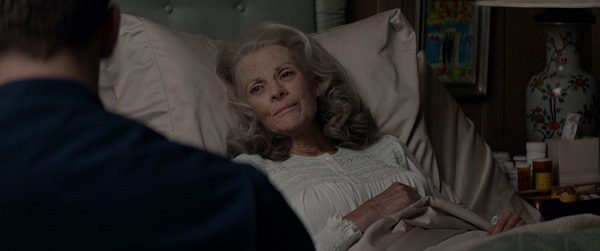
I have lumped these two films together because neither of them has much family themes in them. The whole sub-franchise seems to skip over it. Perhaps because they are dealing with bigger things than the other films: World War II, attempted global use of weapons of mass destruction, the death of millions across the world and the creation of a new world order, a war between all the heroes of the world, that sort of stuff.
There's a little bit of touching on the family that Steve could have had if he had not been frozen, but that's just one facet of a larger issue for the character, and it's usually filtered through the lost relationship he had with Peggy Carter. There is also an argument to be made for Steve Rogers and Johann Schmidt being symbolic brothers, with both Captain America and Red Skull having been "fathered" by Dr. Erskine's science, but that's not an actual relationship that really plays out in the film.
The Avengers (2012)
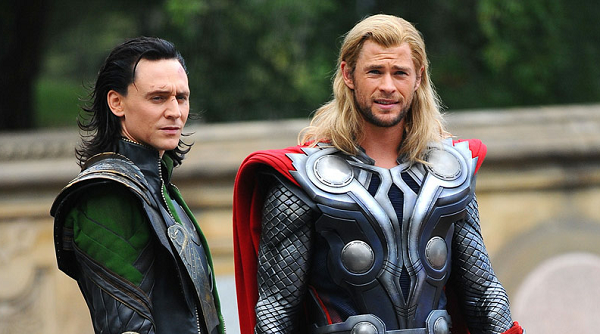
This one is there, but it's much lighter. Much like
Captain America, there's a lot of plates spinning in this movie. Most obviously is the Thor–Loki dynamic, with the latter returning as the film's upfront villain, and the two have some
powerful moments slotted in for them. That's the bulk of the family thematics in
Avengers, though. Sure, the team themselves have a family dynamic to them, but that does not really come out until their second film.
Iron Man 3 (2013)
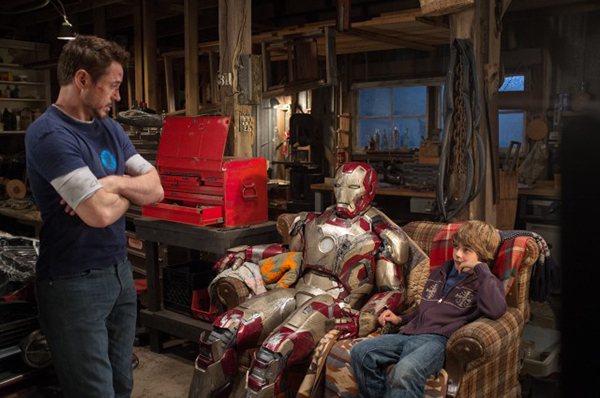
After two films about Tony and his relationship with his father, the third film steps back from that a bit, although we have heard nothing of his mother. Perhaps the change in directors from Jon Favreau to Shane Black had something to do with it as well.
Iron Man 3 deals more with Tony's PTSD after the events of
Avengers, as well as his relationship with Pepper Potts. He does form a relationship with a young boy, but while it could have gone in a fatherly direction, he serves more as a mentor to him. Although they do
commiserate over their daddy issues.
Thor: The Dark World (2013)
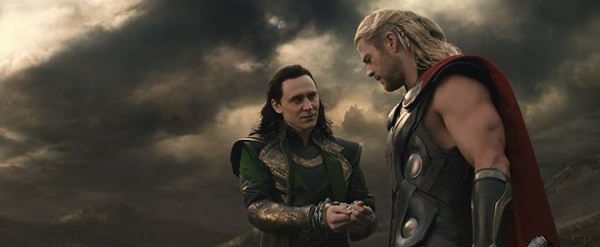
The plots surrounding family are not as central to this film as the previous one. The triangle between Thor, Loki and Odin is not the main dynamic this time, instead focusing simply on Thor and Loki, and the baggage they carry after
Thor and
Avengers. Brought together by a threat that requires Loki's help, as well as the death of their mother, Frigga. They naturally start out very hostile towards each other, but throughout the film their fraternal relationship starts to re-emerge, culminating when
Loki sacrifices himself to save Thor (this is however undercut by the later reveal that Loki faked his death).
Guardians of the Galaxy (2014)
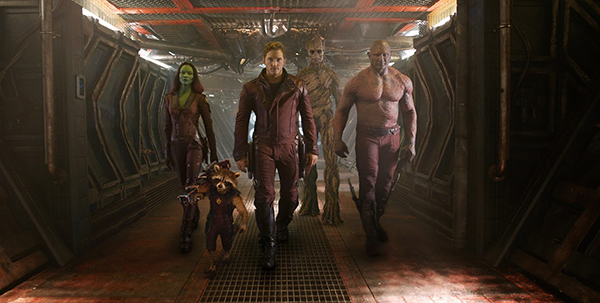
This is where Marvel really kicks things into high gear with the family theme, starting off a series of films that are pretty much
all about family. But none of them more so than
Guardians of the Galaxy. Let's start with the individual characters:
- Peter Quill, plagued by grief after shunning his mother right before she died, and unable to open her final gift to him, he's firmly attached to his walkman and mixtape given to him by her. He's taken in by Yondu and his Ravagers, becoming an adopted son to him, and at the end of the film finds out that his father is an alien, something that has not been seen for a long time.
- Gamora's parents were killed by Thanos, who then took her and raised her as his own child, along with secondary villain Nebula. She's done being Thanos's accomplish, and seeks to escape him.
- Drax's wife and child were killed by Ronan, and he's driven by his rage and thirst for revenge, often blindly so.
- Rocket has no one, being created in a lab. As Chris Pratt (Peter Quill) puts it, "He's on his own... there's nothing in the world like him... and that's a really sad place to come from." He's formed a sort of bond with Groot, although the origin of it is a mystery to us.
- Groot sacrifices himself to save the rest of the team. We do not know much about him (within the context of the film), but he seems to be a unique being, much like Rocket, perhaps something that brought the two together.
These five people, all "people who have lost something", with that something being family, come together and form a new surrogate family together. They
defeat Ronan literally through the bond that they share and — at least in Quill's case, although the implication is there that it applies to them all — coming to terms with their individual losses. The film ends with them all together, a team, a family, a crew, setting off on their next adventure together.
But the Guardians are not the only ones whose arcs revolve around their families. Ronan seeks to destroy Xandar as revenge for them "taking the life of [his] father, and his father, and his father before him", Nebula is caught in a rivalry with her adoptive sister for the favor of Thanos (quite similar to Thor and Loki) and Rhomann Dey is revealed to have a wife and child at home, saved by Quill and his allies, which endeared the corpsman to the rogue.
Avengers: Age of Ultron (2015)
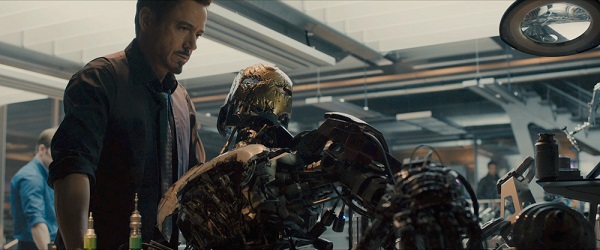
This film lets the team's family dynamic come out and play, but beyond that, every member of the team has some sort of family element to them.
- Tony Stark is father to Ultron, the eponymous villain. Because once Tony gets over his own daddy issues, he has to go create a being with issues about him. Ultron is repeatedly referred to as a child of Stark, and their similarities are often expounded on.
- Thor fears for the family he left behind in Asgard, and in the end leaves to return there.
- Banner and Natasha are in a tenuous relationship, and while Bruce fears that he will never be able to have a family due to his condition, and Natasha reveals that as part of her training process she was sterilized.
- Quicksilver and Scarlet Witch are twins, but they also seek revenge against Tony Stark for the death of their parents.
- Captain America is still alone, as is typical for his character, but now he has found his place as father-figure to the Avengers ("Language!"). According to Chris Evans, "He's still looking for a home, probably a metaphorical home... I think he's looking to understand where he belongs, not just as a soldier, as Captain America, but as Steve Rogers, as a person."
- Hawkeye has the biggest turn on this theme in the film, revealing that he has a wife, children and a house out in the country. Much like Hawkeye grounds the team in his humanity, his family, his normal life that he can return to, grounds him.
Ant-Man (2015)
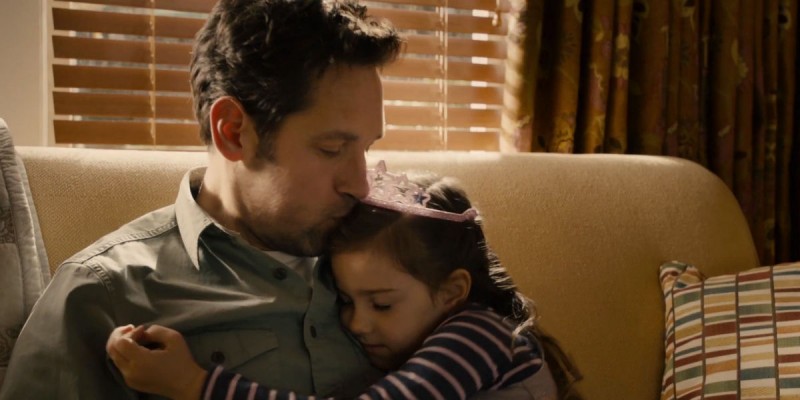
I already discussed the omnipresent theme of fatherhood in
Ant-Man in my review:
Paul Rudd is of course great as Scott Lang, his style of humor blending perfectly with Marvel’s, and he brings some fantastic pathos to his relationship with his daughter, which serves as the heart of the film. They were not just joking in the marketing when they talked about the movie going small. Scott trying to protect his daughter and salvage his relationship with her serves as a much more compelling drive than just trying to stop a villain. Scott’s story with his daughter is paralleled by the one between Hank and Hope. The two had a rift driven between them when Hope’s mother died under mysterious circumstances, and Hope eventually played an integral part in helping Cross wrest the company from Hank. And while their shared desire to keep the technology from getting into the wrong hands brings them back together, their relationship is far from repaired.
This movie is probably the least subtle about its family theme since
Iron Man 2. At its core,
Ant-Man is about fathers repairing relationships with their daughters. Even
the first teaser put Scott and Cassie's relationship front and center. Devin Faraci of Birth.Movies.Death
writes on how the film closes their arc:
Instead the movie has Scott joining the family - complete with Paxton - for a dinner that is at first awkward and then becomes more comfortable. Paxton brings Scott in to the workings of the family by sharing video of Cassie doing somersaults; instead of making this a pointed reminder that Scott has been missing out on his daughter’s life the one-time antagonist creates a bridge to include him.
The capper on the scene, for me, is the revelation that the bizarre overgrown ant that made for such a great gag in the final battle is present, surreptitiously being fed by Cassie under the table - a strange looking dog for a strange looking family. This represents the fact that the weirdness of Scott’s new life has been accepted and absorbed by his family; he’s Ant-Man, and they’re okay with that.
Speculation
Moving into the future, it will be interesting to see how this theme will continue into Marvel's upcoming films. With some films, such as
Thor, it's obvious to predict. With others like
Guardians of the Galaxy, it's completely original to the film. As such, there are only a few of the yet-to-be-released films that we can truly speculate on.
Guardians of the Galaxy Vol. 2 (2017)
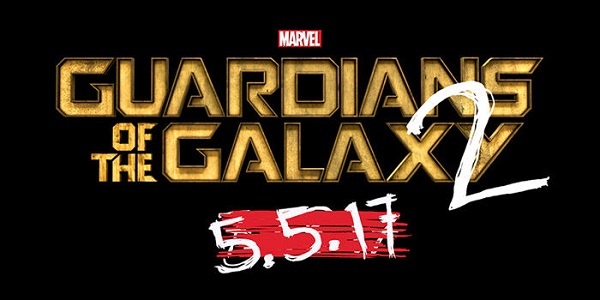
No doubt that the dynamic of the Guardians as a de facto family will continue. We also know that the film will pick up the plot thread about Quill's father that was left at the end of the first one.
Untitled Spider-Man Film (2017)
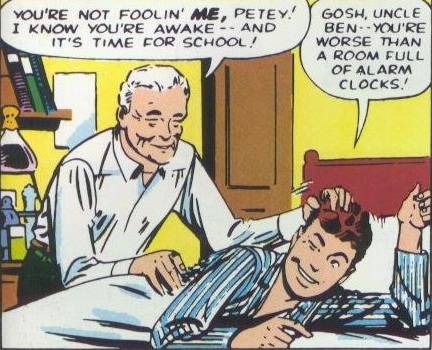
Family has always been a big part of Peter Parker's character. His parents died at a young age, leaving him to be raised by his aunt and uncle, the death of the latter playing a huge part in forming his identity as Spider-Man. Chances are the movie will not touch on his parents, since they were so central to the
Amazing Spider-Man franchise they are moving away from. Since the film has been said not to be an origin story, we may not see Uncle Ben, but there's always the possibility of flashbacks.
Thor: Ragnarok (2017)
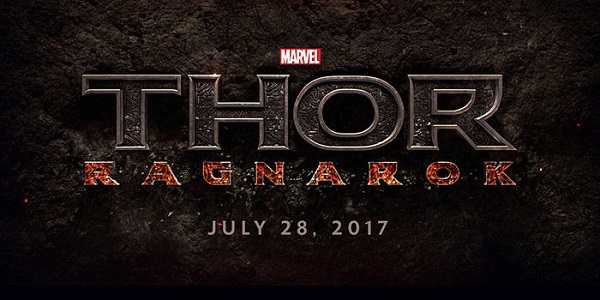
With Loki still around, and impersonating Thor's father no less, how can this film not keep that thread going?
Black Panther (2018)
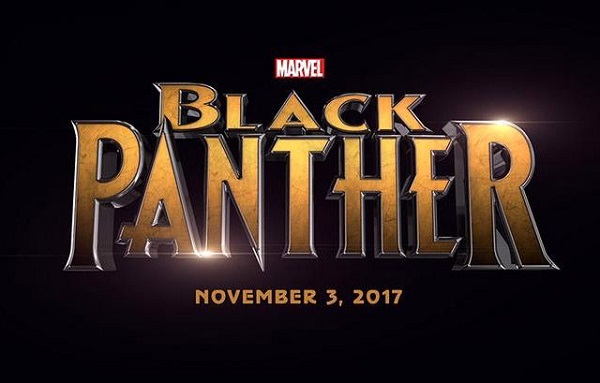
In the comics, T'Challa's father dies when he is young, and he takes over the Black Panther mantle when he comes of age. But apparently in
Captain America: Civil War,
his father will be alive, and mentoring him as he steps into the role. Now, he could survive into
Black Panther, or he could die during
Civil War, but either way T'Challa's relationship with his father, the previous Black Panther, will probably play a significant role in his film.
Inhumans (2019)
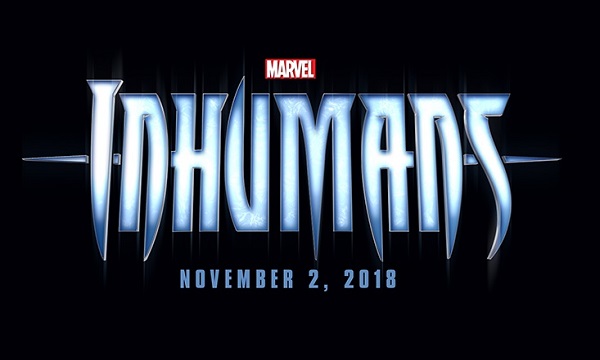
Much like
Thor,
Inhumans is filled with Shakespearean royal family intrigue.
Inhumans follows a royal family of a race of people with powers, who live on the moon. Led by Blackbolt, their king who does not speak for fear of destroying everything around him, his wife and cousin, Medusa, with the power to manipulate her hair like tendrils, they fight against Blackbolt's brother, Maximus, who seeks to steal the throne away. A more thorough write-up on the Inhumans can be found
here. So, needless to say, there will be plenty of complex family dynamics and intrigue.
We also have another Captain America movie,
Doctor Strange,
Captain Marvel and two more
Avengers movies to see where Marvel continues to take this ever present theme as they move forward.
 Marvel came out of the gate swinging, with a character arc that is so overtly driven by family. Tony Stark is content to live in the shadow of his legendary father until he finds out what dark things are lurking inside of it. At the start of the film, Tony is quoting his father to justify the work that he does developing weapons: "My old man had a philosophy: peace means having a bigger stick than the other guy.". After being captured, he's locked up with Yinsen, another scientist who supposedly has a family to go home to, while Stark has none ("So you're a man who has everything... and nothing."), but during their escape Yinsen sacrifices himself, revealing that his family is dead and encourages Tony to do something with his life.
After returning home, the second thing he does is call a press conference, in which he invokes his father again, but with a different perspective,
Marvel came out of the gate swinging, with a character arc that is so overtly driven by family. Tony Stark is content to live in the shadow of his legendary father until he finds out what dark things are lurking inside of it. At the start of the film, Tony is quoting his father to justify the work that he does developing weapons: "My old man had a philosophy: peace means having a bigger stick than the other guy.". After being captured, he's locked up with Yinsen, another scientist who supposedly has a family to go home to, while Stark has none ("So you're a man who has everything... and nothing."), but during their escape Yinsen sacrifices himself, revealing that his family is dead and encourages Tony to do something with his life.
After returning home, the second thing he does is call a press conference, in which he invokes his father again, but with a different perspective,
 This film has always been the black sheep of the Marvel Cinematic Universe, to the point where some even erroneously argue that it is not part of it. This case is no different. Marvel Studios' second endeavor, coming out just over a month after Iron Man, has no themes of family in it whatsoever. Sure, General Ross is Betsy's father, but that is not really a theme, just a character dynamic. Ironically enough, though, Ang Lee's original Hulk film from 2003 has enough family issues for both movies.
Iron Man 2 (2010)
This film has always been the black sheep of the Marvel Cinematic Universe, to the point where some even erroneously argue that it is not part of it. This case is no different. Marvel Studios' second endeavor, coming out just over a month after Iron Man, has no themes of family in it whatsoever. Sure, General Ross is Betsy's father, but that is not really a theme, just a character dynamic. Ironically enough, though, Ang Lee's original Hulk film from 2003 has enough family issues for both movies.
Iron Man 2 (2010)
 Where the first Iron Man approached the issue of Tony's father in a more subtle, subtextual way, the sequel places it front and center. The film is set around Stark Expo, an event that Howard used to hold which Tony has revived to honor his legacy, including playing old newsreel footage of his father at the event. The villain of the film is Ivan Vanko, a literal repercussion of Howard's legacy that is falling onto Tony. Ivan has inherited a grudge against the Starks from his father and is bringing it to bear on Tony.
Tony's first outing had him living under his father's shadow and deciding what to do with the legacy he inherited. This film has Tony coming to terms with his relationship with his father. In one scene, Nick Fury asks Tony what he remembers of his father. He responds with, "He was cold, calculating, never told me he loved me, never even told me he liked me, so it's a bit hard for me to digest that he said the whole future is riding on me thing, I don't get that! You're talking about a man whose happiest day of his life was shipping me off to boarding school," to which Fury counters, "That's not true."
Over the course of the movie Tony revisits his father through the unedited newsreel footage, seeing past the man in the newsreels that he talked about in the first film, trying to reconnect with him and find answers. Eventually, he comes across a message left specifically for him,
Where the first Iron Man approached the issue of Tony's father in a more subtle, subtextual way, the sequel places it front and center. The film is set around Stark Expo, an event that Howard used to hold which Tony has revived to honor his legacy, including playing old newsreel footage of his father at the event. The villain of the film is Ivan Vanko, a literal repercussion of Howard's legacy that is falling onto Tony. Ivan has inherited a grudge against the Starks from his father and is bringing it to bear on Tony.
Tony's first outing had him living under his father's shadow and deciding what to do with the legacy he inherited. This film has Tony coming to terms with his relationship with his father. In one scene, Nick Fury asks Tony what he remembers of his father. He responds with, "He was cold, calculating, never told me he loved me, never even told me he liked me, so it's a bit hard for me to digest that he said the whole future is riding on me thing, I don't get that! You're talking about a man whose happiest day of his life was shipping me off to boarding school," to which Fury counters, "That's not true."
Over the course of the movie Tony revisits his father through the unedited newsreel footage, seeing past the man in the newsreels that he talked about in the first film, trying to reconnect with him and find answers. Eventually, he comes across a message left specifically for him,
 This one is really a no-brainer, isn't it? Thor, in movies, myth and comics, contains enough familial intrigue and scheming to do William Shakespeare proud, which is why Marvel went and got famed Shakespearean director Kenneth Branagh to direct the film.
Thor and Loki, both sons of the king Odin, raised to take his place while only one of them can. After an attack on Thor's coronation – secretly orchestrated by Loki – Thor makes a brash and reckless attack on the Frost Giants, causing him to be stripped of his power and exiled. During Thor's absence, Loki discovers that he is not actually Odin's son, but was stolen away from the king of the Frost Giants as a child. Loki conspires with his biological father to kill his adoptive father so that he can betray his biological father, save his adoptive father, earn his respect, and take the heirship from his brother. And that's the simple version.
The entire film is driven by the relationship dynamic of these three people. Thor learning from Odin, Loki trying to win Odin's approval while struggling with his newfound parentage, Odin trying to maintain peace between the Asgardians and Frost Giants, represented by his two sons, and of course the conflict between the two brothers, whose fraternal relationship persists to the end.
Captain America: The First Avenger (2011)/Captain America: The Winter Soldier (2014)
This one is really a no-brainer, isn't it? Thor, in movies, myth and comics, contains enough familial intrigue and scheming to do William Shakespeare proud, which is why Marvel went and got famed Shakespearean director Kenneth Branagh to direct the film.
Thor and Loki, both sons of the king Odin, raised to take his place while only one of them can. After an attack on Thor's coronation – secretly orchestrated by Loki – Thor makes a brash and reckless attack on the Frost Giants, causing him to be stripped of his power and exiled. During Thor's absence, Loki discovers that he is not actually Odin's son, but was stolen away from the king of the Frost Giants as a child. Loki conspires with his biological father to kill his adoptive father so that he can betray his biological father, save his adoptive father, earn his respect, and take the heirship from his brother. And that's the simple version.
The entire film is driven by the relationship dynamic of these three people. Thor learning from Odin, Loki trying to win Odin's approval while struggling with his newfound parentage, Odin trying to maintain peace between the Asgardians and Frost Giants, represented by his two sons, and of course the conflict between the two brothers, whose fraternal relationship persists to the end.
Captain America: The First Avenger (2011)/Captain America: The Winter Soldier (2014)
 I have lumped these two films together because neither of them has much family themes in them. The whole sub-franchise seems to skip over it. Perhaps because they are dealing with bigger things than the other films: World War II, attempted global use of weapons of mass destruction, the death of millions across the world and the creation of a new world order, a war between all the heroes of the world, that sort of stuff.
There's a little bit of touching on the family that Steve could have had if he had not been frozen, but that's just one facet of a larger issue for the character, and it's usually filtered through the lost relationship he had with Peggy Carter. There is also an argument to be made for Steve Rogers and Johann Schmidt being symbolic brothers, with both Captain America and Red Skull having been "fathered" by Dr. Erskine's science, but that's not an actual relationship that really plays out in the film.
The Avengers (2012)
I have lumped these two films together because neither of them has much family themes in them. The whole sub-franchise seems to skip over it. Perhaps because they are dealing with bigger things than the other films: World War II, attempted global use of weapons of mass destruction, the death of millions across the world and the creation of a new world order, a war between all the heroes of the world, that sort of stuff.
There's a little bit of touching on the family that Steve could have had if he had not been frozen, but that's just one facet of a larger issue for the character, and it's usually filtered through the lost relationship he had with Peggy Carter. There is also an argument to be made for Steve Rogers and Johann Schmidt being symbolic brothers, with both Captain America and Red Skull having been "fathered" by Dr. Erskine's science, but that's not an actual relationship that really plays out in the film.
The Avengers (2012)
 This one is there, but it's much lighter. Much like Captain America, there's a lot of plates spinning in this movie. Most obviously is the Thor–Loki dynamic, with the latter returning as the film's upfront villain, and the two have some powerful moments slotted in for them. That's the bulk of the family thematics in Avengers, though. Sure, the team themselves have a family dynamic to them, but that does not really come out until their second film.
Iron Man 3 (2013)
This one is there, but it's much lighter. Much like Captain America, there's a lot of plates spinning in this movie. Most obviously is the Thor–Loki dynamic, with the latter returning as the film's upfront villain, and the two have some powerful moments slotted in for them. That's the bulk of the family thematics in Avengers, though. Sure, the team themselves have a family dynamic to them, but that does not really come out until their second film.
Iron Man 3 (2013)
 After two films about Tony and his relationship with his father, the third film steps back from that a bit, although we have heard nothing of his mother. Perhaps the change in directors from Jon Favreau to Shane Black had something to do with it as well. Iron Man 3 deals more with Tony's PTSD after the events of Avengers, as well as his relationship with Pepper Potts. He does form a relationship with a young boy, but while it could have gone in a fatherly direction, he serves more as a mentor to him. Although they do commiserate over their daddy issues.
Thor: The Dark World (2013)
After two films about Tony and his relationship with his father, the third film steps back from that a bit, although we have heard nothing of his mother. Perhaps the change in directors from Jon Favreau to Shane Black had something to do with it as well. Iron Man 3 deals more with Tony's PTSD after the events of Avengers, as well as his relationship with Pepper Potts. He does form a relationship with a young boy, but while it could have gone in a fatherly direction, he serves more as a mentor to him. Although they do commiserate over their daddy issues.
Thor: The Dark World (2013)
 The plots surrounding family are not as central to this film as the previous one. The triangle between Thor, Loki and Odin is not the main dynamic this time, instead focusing simply on Thor and Loki, and the baggage they carry after Thor and Avengers. Brought together by a threat that requires Loki's help, as well as the death of their mother, Frigga. They naturally start out very hostile towards each other, but throughout the film their fraternal relationship starts to re-emerge, culminating when Loki sacrifices himself to save Thor (this is however undercut by the later reveal that Loki faked his death).
Guardians of the Galaxy (2014)
The plots surrounding family are not as central to this film as the previous one. The triangle between Thor, Loki and Odin is not the main dynamic this time, instead focusing simply on Thor and Loki, and the baggage they carry after Thor and Avengers. Brought together by a threat that requires Loki's help, as well as the death of their mother, Frigga. They naturally start out very hostile towards each other, but throughout the film their fraternal relationship starts to re-emerge, culminating when Loki sacrifices himself to save Thor (this is however undercut by the later reveal that Loki faked his death).
Guardians of the Galaxy (2014)
 This is where Marvel really kicks things into high gear with the family theme, starting off a series of films that are pretty much all about family. But none of them more so than Guardians of the Galaxy. Let's start with the individual characters:
This is where Marvel really kicks things into high gear with the family theme, starting off a series of films that are pretty much all about family. But none of them more so than Guardians of the Galaxy. Let's start with the individual characters:
 This film lets the team's family dynamic come out and play, but beyond that, every member of the team has some sort of family element to them.
This film lets the team's family dynamic come out and play, but beyond that, every member of the team has some sort of family element to them.
 I already discussed the omnipresent theme of fatherhood in Ant-Man in my review:
I already discussed the omnipresent theme of fatherhood in Ant-Man in my review:
 No doubt that the dynamic of the Guardians as a de facto family will continue. We also know that the film will pick up the plot thread about Quill's father that was left at the end of the first one.
Untitled Spider-Man Film (2017)
No doubt that the dynamic of the Guardians as a de facto family will continue. We also know that the film will pick up the plot thread about Quill's father that was left at the end of the first one.
Untitled Spider-Man Film (2017)
 Family has always been a big part of Peter Parker's character. His parents died at a young age, leaving him to be raised by his aunt and uncle, the death of the latter playing a huge part in forming his identity as Spider-Man. Chances are the movie will not touch on his parents, since they were so central to the Amazing Spider-Man franchise they are moving away from. Since the film has been said not to be an origin story, we may not see Uncle Ben, but there's always the possibility of flashbacks.
Thor: Ragnarok (2017)
Family has always been a big part of Peter Parker's character. His parents died at a young age, leaving him to be raised by his aunt and uncle, the death of the latter playing a huge part in forming his identity as Spider-Man. Chances are the movie will not touch on his parents, since they were so central to the Amazing Spider-Man franchise they are moving away from. Since the film has been said not to be an origin story, we may not see Uncle Ben, but there's always the possibility of flashbacks.
Thor: Ragnarok (2017)
 With Loki still around, and impersonating Thor's father no less, how can this film not keep that thread going?
Black Panther (2018)
With Loki still around, and impersonating Thor's father no less, how can this film not keep that thread going?
Black Panther (2018)
 In the comics, T'Challa's father dies when he is young, and he takes over the Black Panther mantle when he comes of age. But apparently in Captain America: Civil War, his father will be alive, and mentoring him as he steps into the role. Now, he could survive into Black Panther, or he could die during Civil War, but either way T'Challa's relationship with his father, the previous Black Panther, will probably play a significant role in his film.
Inhumans (2019)
In the comics, T'Challa's father dies when he is young, and he takes over the Black Panther mantle when he comes of age. But apparently in Captain America: Civil War, his father will be alive, and mentoring him as he steps into the role. Now, he could survive into Black Panther, or he could die during Civil War, but either way T'Challa's relationship with his father, the previous Black Panther, will probably play a significant role in his film.
Inhumans (2019)
 Much like Thor, Inhumans is filled with Shakespearean royal family intrigue. Inhumans follows a royal family of a race of people with powers, who live on the moon. Led by Blackbolt, their king who does not speak for fear of destroying everything around him, his wife and cousin, Medusa, with the power to manipulate her hair like tendrils, they fight against Blackbolt's brother, Maximus, who seeks to steal the throne away. A more thorough write-up on the Inhumans can be found here. So, needless to say, there will be plenty of complex family dynamics and intrigue.
We also have another Captain America movie, Doctor Strange, Captain Marvel and two more Avengers movies to see where Marvel continues to take this ever present theme as they move forward.
Much like Thor, Inhumans is filled with Shakespearean royal family intrigue. Inhumans follows a royal family of a race of people with powers, who live on the moon. Led by Blackbolt, their king who does not speak for fear of destroying everything around him, his wife and cousin, Medusa, with the power to manipulate her hair like tendrils, they fight against Blackbolt's brother, Maximus, who seeks to steal the throne away. A more thorough write-up on the Inhumans can be found here. So, needless to say, there will be plenty of complex family dynamics and intrigue.
We also have another Captain America movie, Doctor Strange, Captain Marvel and two more Avengers movies to see where Marvel continues to take this ever present theme as they move forward.